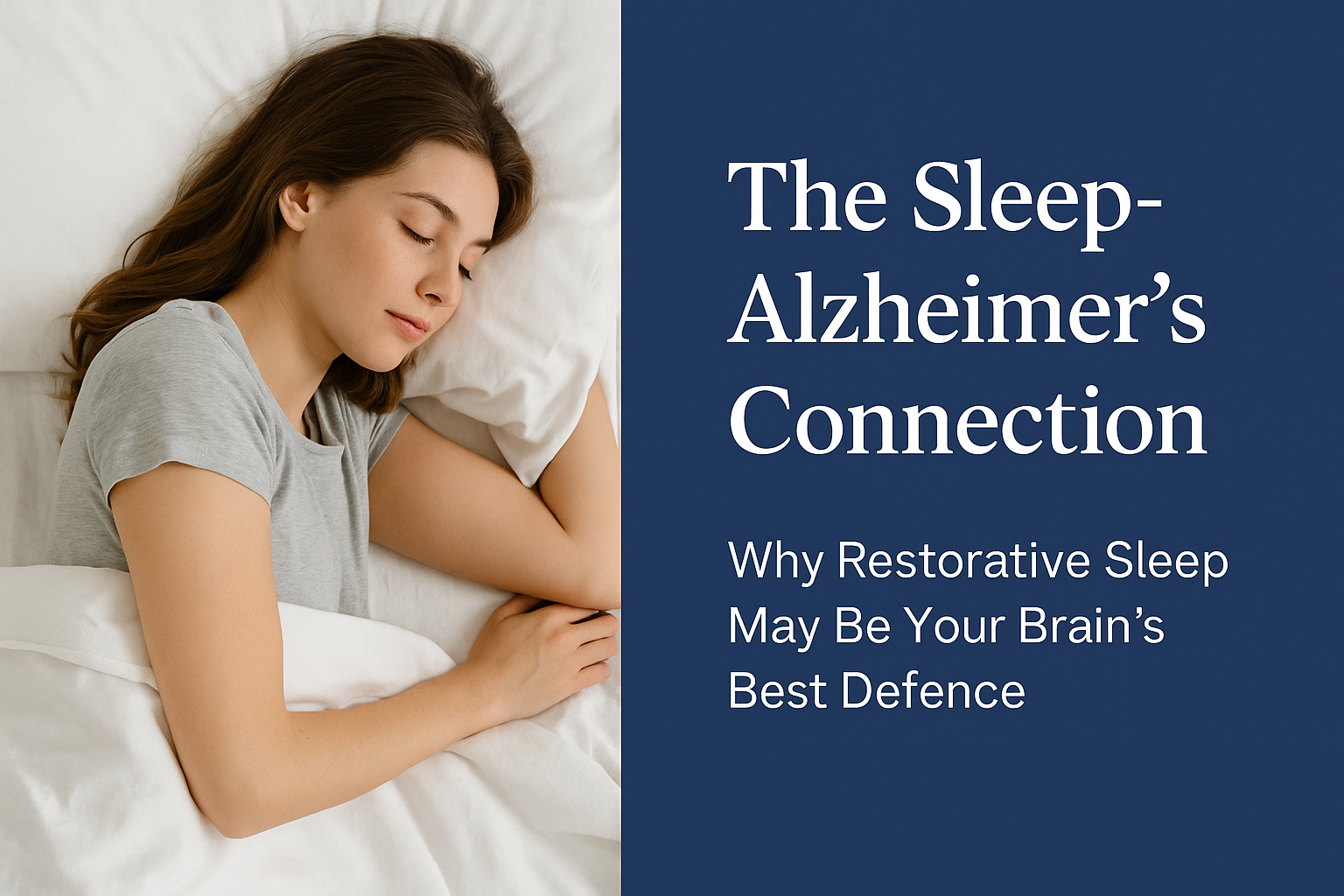As we continue exploring the vital lifestyle factors that may influence Alzheimer’s disease, one area stands out more and more in scientific research: sleep. Emerging studies suggest that the quality of your sleep could be just as important as what you eat when it comes to maintaining long-term brain health.
How Sleep Impacts Brain Health
During deep, restorative sleep, your brain activates a clever waste-clearing system known as the glymphatic system. This process helps to flush out toxins, including beta-amyloid, a protein that builds up abnormally in the brains of people with Alzheimer’s disease. When sleep is poor or fragmented, this “cleaning cycle” doesn’t happen effectively, increasing the risk of cognitive decline over time.
In short, better sleep may reduce your risk of Alzheimer’s—and the research is getting stronger by the year.
The Problem: Why We’re Sleeping Less and Worse
Modern life isn’t kind to our sleep cycles. Blue light from screens, constant stimulation, and ultra-processed diets all take a toll on our natural circadian rhythms. Add in caffeine, sugar, and alcohol, and you have a recipe for poor-quality rest.
Even more concerning is that chronic sleep deprivation is common in midlife—a period when brain changes linked to Alzheimer’s may silently begin.
What the Blue Zones Teach Us About Sleep
In the world’s five Blue Zones—Ikaria (Greece), Sardinia (Italy), Okinawa (Japan), Loma Linda (California), and Nicoya (Costa Rica)—people live longer and suffer less from cognitive diseases like Alzheimer’s. A key part of their lifestyle? Regular, high-quality sleep.
Blue Zone communities:
- Sleep and wake in alignment with natural daylight
- Prioritise low-stress evenings, often free of screens
- Eat light, early dinners rich in whole, plant-based foods
- Engage in social rituals that support emotional wellbeing and relaxation
These habits help maintain healthy melatonin cycles, protect the blood-brain barrier, and foster optimal detoxification of the brain during sleep.
Natural Ways to Improve Sleep and Protect Your Brain
To support deep sleep and long-term cognitive health, consider incorporating these strategies:
Choose Brain-Friendly Foods
- Eat a diet rich in whole, unprocessed, organic produce
- Include natural sources of magnesium (like leafy greens and seeds), which supports relaxation
- Limit caffeine after midday and avoid sugary foods that disrupt sleep patterns
Create a Wind-Down Routine
- Reduce screen time at least one hour before bed
- Use natural relaxation techniques like herbal teas (chamomile, lemon balm) or mindfulness
- Sleep in a cool, dark, and quiet environment
Stay Active and Engaged
Daily movement and exposure to natural light support a healthy sleep-wake cycle, both of which are essential for Alzheimer’s prevention.
Final Thought
There is still no cure for Alzheimer’s—but the science is clear: prevention matters, and it starts now. Ensuring deep, restorative sleep isn’t just about feeling rested. It’s about giving your brain the opportunity to heal, cleanse, and stay sharp as you age.
At Blue Zone Nutrition, we believe that everyday choices shape our future health. A clean, anti-inflammatory diet, stress-reducing routines, and good sleep hygiene are powerful tools for protecting your brain—starting tonight.
Written by Milvia Pili (FNTP)
Registered Nutritional Therapist
Blue Zone Nutrition – Prevention Through Lifestyle




